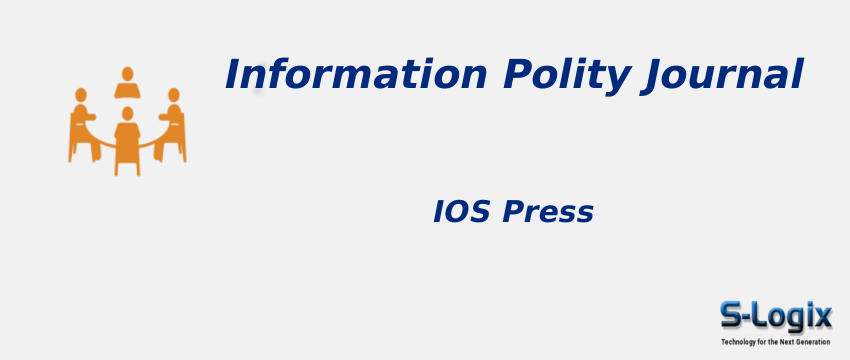Information Polity is a tangible expression of the increasing awareness that Information and Communication technologies (ICTs) have become of deep significance for all polities as new technology-enabled forms of government, governing and democratic practice are sought or experienced throughout the world.
Journal Home: Journal Homepage
Editor-in-Chief: Albert Meijer,William Webster
scope: Bureaucratic reform and modernization - Public and democratic innovation - Public policy in the information age - Citizenship in the information age - The impact of ICTs on political institutions and democratic practice - ICT regulation and governance -Social media and citizen engagement - Political information and the role of new media - Internet activism, political organization and collective action - Government ICT strategy, leadership and management.
Print ISSN: 15701255,
Electronic ISSN: 18758754
Abstracting and Indexing: Scopus
Imapct Factor :
Subject Area and Category: Computer Science Information Systems Social Sciences Communication Geography, Planning and Development Public Administration Sociology and Political Science
Publication Frequency:
H Index: 39
Q1: Sociology and Political Science
Q2:
Q3:
Q4:
Cite Score: 4.4
SNIP: 1.286
Journal Rank(SJR): 0.646
Latest Articles: Latest Articles in Information Polity
Guidelines for Authors: Information Polity Author Guidelines
Paper Submissions: Paper Submissions in Information Polity
Publisher: IOS Press
Country: Netherlands
